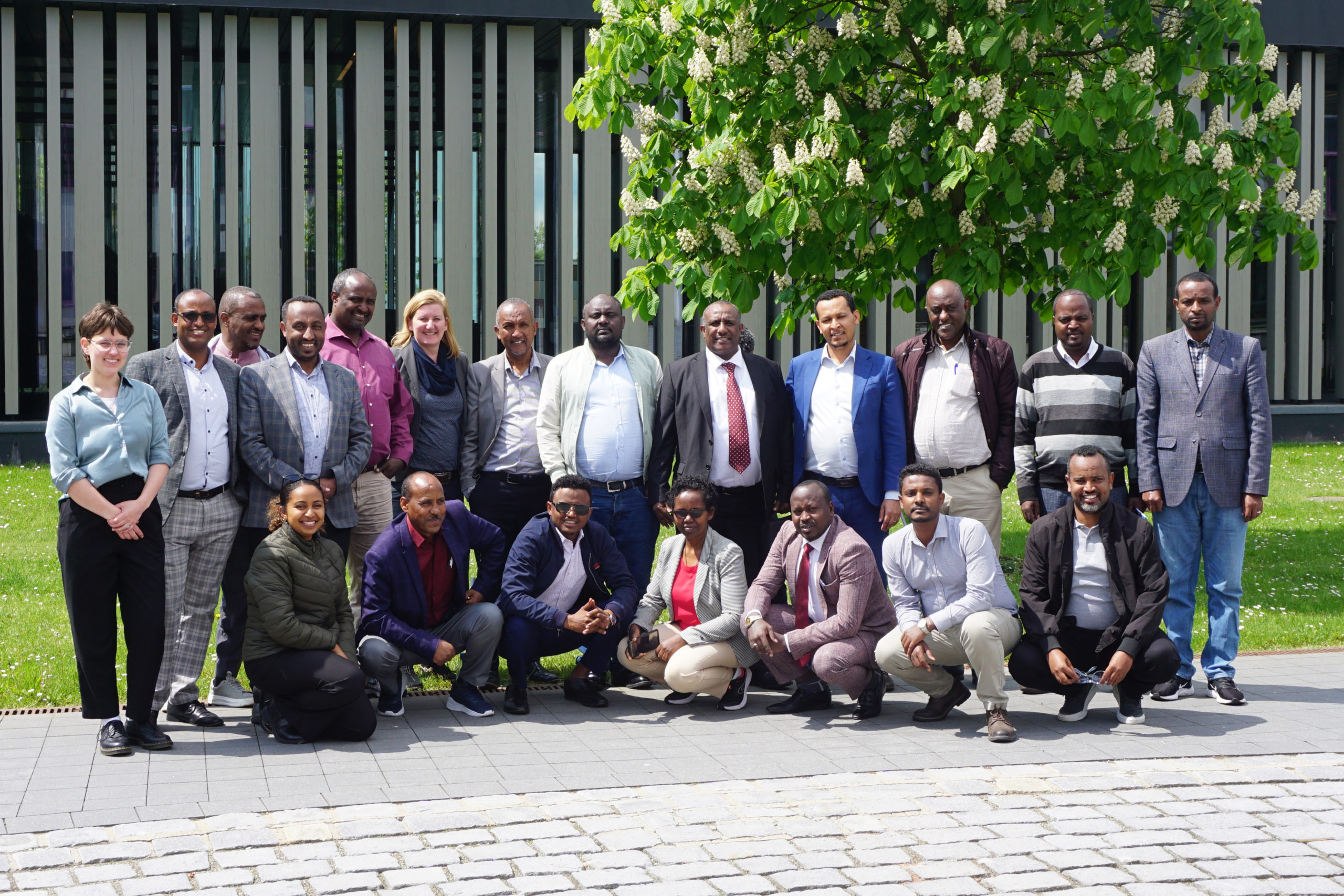 Die Delegation aus Äthiopien besuchte auf ihrer Study Tour u.a. die OTH Amberg-Weiden | Foto: OTH Amberg-Weiden / Linda Misch
Die Delegation aus Äthiopien besuchte auf ihrer Study Tour u.a. die OTH Amberg-Weiden | Foto: OTH Amberg-Weiden / Linda Misch21 visitors from Ethiopia, mainly vice-presidents, take their first-hand impressions and experiences home with them today, ready for use at their universities. Looking behind the scenes at universities of applied sciences (UASs), they experienced seven prime examples of special UAS profiles over the past two weeks. The overarching question being: What aspects of the experience gained in Germany can be transferred to the higher education system in Ethiopia, and how?
Ethiopia’s higher education landscape has expanded considerably in recent years, resulting in the establishment of many new institutions, both state-run and private. But aspects such as practice-based teaching and close contacts with industry have yet to be adequately addressed by the current higher education system of traditional universities, which is lacking in differentiation. What these institutions lack are application-oriented study programmes, such as those provided in Germany by universities of applied sciences (UASs). For this reason, the Ethiopian government has converted 15 state-run universities into UASs with the intention of filling this supply gap and satisfying regional needs.
During study visits to Germany this year, the leaders of these newly established higher education institutions from Ethiopia had the opportunity to directly experience how the special profiles of UASs enrich the higher education system, and which aspects could perhaps be transferred to the needs of Ethiopia. Two delegations gained an insight into everyday university life during visits to UASs in the East Westphalia-Lippe (OWL) region of North Rhine-Westphalia, in southern Lower Saxony and in Bavaria. The aim was to show them that UASs are not just about practice-based teaching, applied research and transfer, regional commitment, networking with business and labour markets, entrepreneurship/start-ups and sustainable development. By experiencing a selection of UASs, the delegations also learned that these university can also have their own individual profiles. Questions raised by the Ethiopian guests were taken as a starting point, and tackled and addressed at the model universities.
Professor Dr Frank Ziegele, Executive Director of CHE and Director and Professor of Higher Education and Research Management at Osnabrück University of Applied Sciences, bade goodbye to the guests on the last day of their study programme at Technische Hochschule Ingolstadt: “The decisive factor will be how to use the experience gained in Germany to develop an Ethiopian approach to developing UASs. For example, you first have to build a relationship of trust with companies in the region before you can think about appropriate formats such as dual study programmes.”
In March 2023, the first delegation of university presidents had the opportunity to experience the special attributes of UASs and to discuss their suitability and transferability to the Ethiopian higher education system. The participating institutions were Osnabrück University of Applied Sciences, FH Münster, Hamm-Lippstadt University of Applied Sciences, OWL University of Applied Sciences and Arts, OTH Amberg-Weiden, Deggendorf Institute of Technology, and Technische Hochschule Ingolstadt; Weihenstephan-Triesdorf University of Applied Sciences was involved in the first visit. In addition, the perspective of employers was presented at the Phoenix Contact company in OWL, where the mutual benefits of linking business and science were highlighted.
Background
The visits are part of a project of the Deutsche Gesellschaft für internationale Zusammenarbeit (GIZ) being implemented by Osnabrück University of Applied Sciences, FH Münster and the CHE Centre for Higher Education. CHE is currently also involved in the EU-funded FAITH project. The aim of this project is to share European experience with UASs for the benefit of Ethiopia.
For years, the modernisation of the higher education system in Ethiopia has been accompanied by the CHE Centre for Higher Education, Osnabrück University of Applied Sciences and other partners. For example, CHE was involved in numerous leadership trainings for university heads and deans from Ethiopia.
Foto: OTH Amberg-Weiden / Linda Misch
